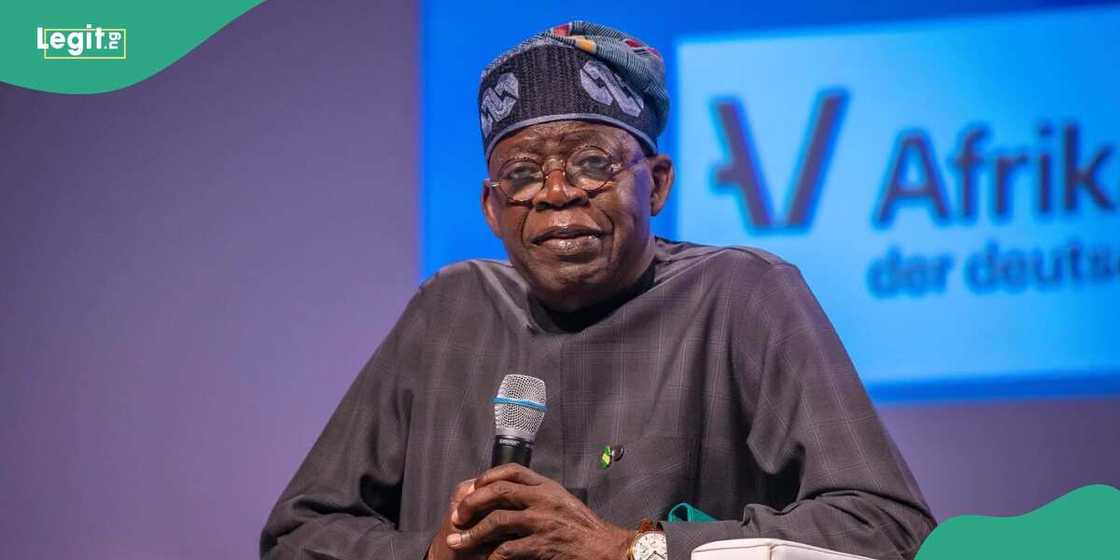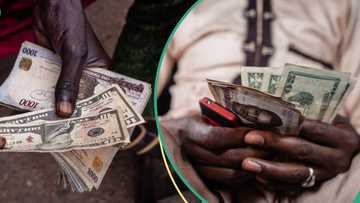Nigeria Spends $3.5 Billion Repaying IMF, World Bank, Other Loans in 2023
- The Nigerian government spent about $3.5 billion servicing external loans in 2023
- The country's external debt profile stands at $42.29 billion from $41.69 billion recorded in 2022
- In the year under review, the Nigerian government serviced loans from the IMF, the World Bank and Eurobonds
Legit.ng’s Pascal Oparada has reported on tech, energy, stocks, investment and the economy for over a decade.
In 2023, the Nigerian government incurred a debt service of $3.5 billion for its external loans.
Data from the Central Bank of Nigeria (CBN) shows that the amount is an increase of 55% from the $2.6 billion used in debt servicing in 2022.

Source: Facebook
Nigeria's external debt hits $42.29 billion
Information from the Debt Management Office (DMO) shows that Nigeria's total external debt profile is $42.29 billion, an increase from $41.69 billion in 2022.
PAY ATTENTION: Click “See First” under the “Following” tab to see Legit.ng News on your Facebook News Feed!
The data from the CBN shows that Nigeria's debt service for Q1 gulped $801.36 million, $368.26 million in Q2, $1.390.72 million in Q3, and $943.17 in the last quarter of 2023.
Nigeria’s debt service costs have steadily risen since it began in 2017 with $464.1 million. By 2018, the amount had tripled to peak at $1.472 billion
The country reportedly witnessed a decrease in the amount used in debt servicing in 2019, when it incurred a debt service cost of $1.334 billion due to the COVID-19 pandemic. The amount later jumped annually, climaxing in 2023 with a debt service cost of $3.503 billion, showing a growing dependence on external debt.
According to current data from DMO, Nigeria’s external debt has climbed from $27.6 billion in 2019 to $33.4 billion.
Top sources of Nigeria's external debts
The country added about $3.5 billion in IMF loans and $11.1 billion in World Bank loans from the $9.6 billion it owed before 2019.
Reports say that by 2023, World Bank-related loans rose to $14.9 billion in addition to the commercial debt market, with Eurobond debt increasing from $10.8 billion to $15.1 billion.
Bilateral loans from China, France and other multilateral sources have also risen in the last five years.
The country reportedly repaid a $500-million Eurobond loan in June last year, obtained six years prior at a coupon rate of 6,375% per annum.
In January this year, Legit.ng reported that the country spent about $3.05 billion in debt servicing on Chinese and other bilateral loans.
DMO states that Nigeria has repaid $1.8 billion in securities in the International Market (ICM) over the past six years.
Data shows how much each Nigerian owes
Legit.ng previously reported that data from the Debt Management Office (DMO) shows that Nigeria’s total public debt stands at N87.91 trillion as of September 2023.
The figure includes new borrowings under President Bola Tinubu.
The increased debt profile comes four months after President Tinubu and 18 new governors came into office in May 2023.
PAY ATTENTION: Unlock the best of Legit.ng on Pinterest! Subscribe now and get your daily inspiration!
Source: Legit.ng




